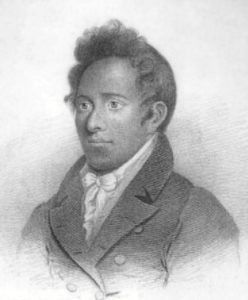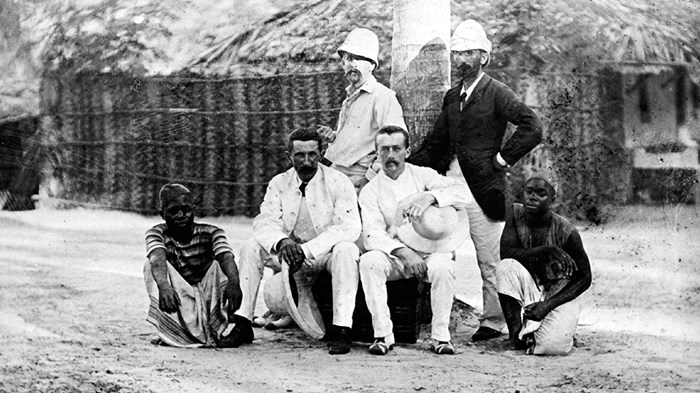
Portrait of Henry “Obookiah,” undated frontispiece in Memoirs of Henry Obookiah. Courtesy of Eleanor C. Nordyke/Wikimedia Commons.
Deborah Li‘ikapeka Lee, a young Native Hawaiian (Kanaka Maoli) woman, woke in the wee hours of an October night in 1992 to an inner sensation, impossible to define and equally impossible to ignore.
Alone and unsure of what was happening to her, she feared illness and anxiously rose from her bed, searching for the comfort of her Bible. The sensation continued to well up inside her, forcing its way out, yielding a voice that spoke as clearly as if its source was standing in front of her. She heard five words: “He wants to come home.”
The “he” in Debbie’s spiritual visitation was her seventh-generation cousin, Henry ‘Ōpūkaha‘ia, who was the first Native Hawaiian to become Christianized. Born in 1792, his parents were brutally slain before his childhood eyes by Kamehameha I’s warriors, and he contemplated leaving the Big Island in the first decade of the 19th century rather than remaining there as an orphan. While training to become a kahuna, a Hawaiian spiritual leader, at the Hikiau Heiau, a traditional place of worship in Nāpo‘opo‘o at Kealakekua Bay, ‘Ōpūkaha‘ia secured passage onboard an American merchant ship, sailing halfway around the world hoping to replace pain and memory, attempting to outrun his survivor’s guilt, and seeking peace from the violence he experienced in his youth.
So begins Nicholas F. Bellantoni’s brief account of his involvement in bringing Henry Opukaha’ia/Obookiah’s remains home to Hawai’i. You may read the entire piece here.







